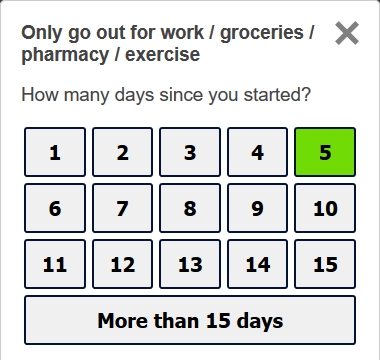Angina pectoris is a disease characterized by episodes of severe chest pain or discomfort due to acute myocardial ischemia, one of the forms of ischemic heart disease. Attacks provoke physical exertion, stress or emotional overexcitation (angina pectoris), but sometimes they can occur for no apparent reason (angina at rest, or spontaneous). Angina is not life threatening, but it carries a higher risk of complications such as myocardial infarction and sudden cardiac death.
The prevalence of angina pectoris increases with age and is observed in men 3-5 times more often than in women. Risk factors are obesity, smoking, hypertension, diabetes mellitus, and a burdened family history.
In connection with the threat of progression of the disease, emergency care for angina pectoris should be provided as early as possible, even at the pre-medical stage. Clarity, timeliness and coordination of actions are the main guarantee of rapid regression of pain syndrome.
Clinical picture
The main symptoms of the disease:
- Pain in the chest, which is characterized as pressing, constricting, burning.
- Spread of pain to the neck, jaw, arms, shoulders, or back.
- Shortness of breath, feeling short of breath (cardiac asthma), pallor.
- Sudden and severe tiredness.
- Anxiety and worry.
- Nausea, dizziness, cold sweats.
It is important to differentiate between attacks of angina pectoris and panic attacks that are similar in symptomatology. Common to these two conditions: chest pain, sweating, shortness of breath. In a panic attack, the first place is the symptoms of rapid breathing and irrational fears, paresthesia throughout the body, and chest pain is of an intermittent, transient nature, while for angina the most common complaint is cardialgia with typical characteristics and duration of a painful episode.
Emergency care for an attack of angina pectoris
Algorithm of actions:
immediately stop any activity if pain occurs during physical effort;
- to provide rest and help the patient to take a comfortable half-sitting position, raising his head;
- ask the person if they have antianginal drugs in the form of sublingual tablets or spray; if any, help him accept them;
- when the pain does not decrease within 5 minutes after taking the medication, a second dose must be taken;
- if pain lasts 15 minutes or more, or resumes after some relief, myocardial infarction may be suspected. In this case, you must call emergency medical assistance;
- in the absence of any drugs and improvement after the termination of the load and rest, you must immediately call for medical help;
- If symptoms stop completely within 15 minutes of resting and / or taking the drug, the person can return to normal activities, as long as they are not stressful, and see their healthcare provider as planned.
One of the most common and effective drugs that help relieve an angina attack at home is Nitroglycerin. It is used in the form of sublingual tablets, drops, or spray. To relieve angina pain, take 1-2 tablets of the drug, 1-2 drops of solution or 1 dose of aerosol every 5-10 minutes, but no more than 3-4 times in 15 minutes. The patient's condition should be monitored, since frequent side effects are a decrease in blood pressure, as well as dizziness and headache. Contraindications to the use of the drug are angle-closure glaucoma, arterial hypotension, increased intracranial pressure and cerebral hemorrhage.
With excessive anxiety of the patient, you can use mild sedatives, such as "Valocordin" or "Corvalol" (25-30 drops).
How to relieve an attack at home?
First of all, it is necessary to provide the patient with peace. A semi-sitting position with support under the head and back is considered optimal, it is desirable to create access to fresh air. It is necessary to loosen clothes in the neck and waist area in order to facilitate breathing. During an attack, you should avoid consuming any liquids and food, as well as smoking. It is important to constantly reassure the patient, because any emotional overstrain can lead to a worsening of the condition and even to a hypotonic crisis and collapse. It is imperative to monitor the patient's vital functions (heart rate and respiration) and be ready, if necessary, to immediately begin cardiopulmonary resuscitation.
If the condition does not improve after 15 minutes of rest and / or taking "Nitroglycerin", it is highly probable that the patient will develop myocardial infarction.. In this case, it is necessary to take acetylsalicylic acid (provided that there is no allergic reaction to it) in the form of a chewable tablet, time it and immediately call emergency medical help.
Emergency medical care is also required under the following conditions:
- chest pain appeared for the first time;
- symptoms of angina pectoris differ in strength from those in previous attacks;
- the nature of the pain has changed.
You should never transport a patient with chest pain in your car, since any overexertion can worsen the patient's condition and it will be extremely difficult to correct it in such conditions.
Conclusions
Angina pectoris is a fairly common pathological condition that manifests itself as an attack of severe chest pain associated with acute circulatory failure in the heart muscle. Urgent and effective assistance at the earliest stage, which consists in eliminating provoking factors and taking antianginal drugs, can significantly reduce the likelihood of complications and deterioration of the patient's condition.



